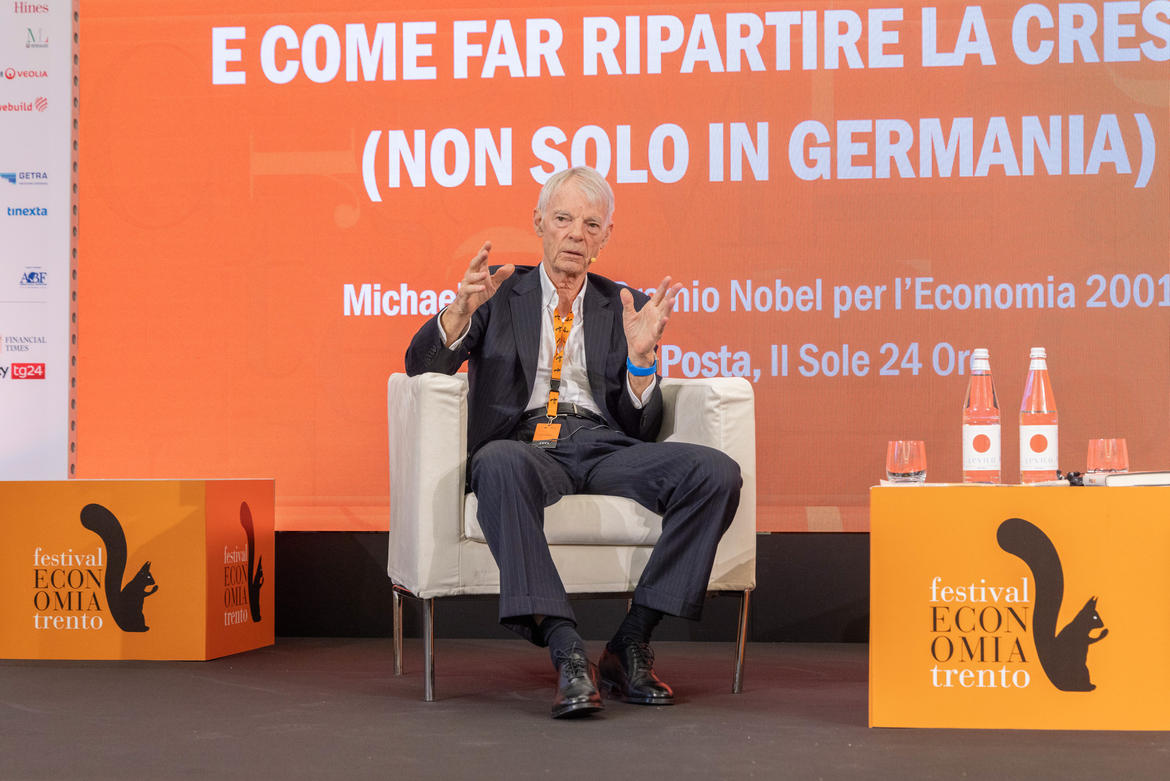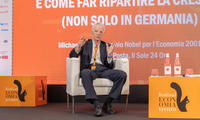
The conference addressed several key issues concerning the economic situation in Germany and the European Union. It began with an overview of Germany’s ongoing stagnation, which has now lasted for two years. Spence outlined multiple contributing factors, including a series of external shocks: the climate crisis, the war in Ukraine, and its impact on Russian gas supplies, and Trump’s tariff war. He emphasized that technology is a crucial sector that must be further developed for economic growth to resume. However, competition is fierce, particularly in Asia, with China, Japan, and South Korea leading.
Prompted by journalist Laura La Posta, Spence illustrated how “Europe needs huge investment in technological infrastructure available for those working in applied research. Europe and Germany can close the AI gap, but they need to work together, and not individually. TIt’s a conceptual mistake to think that Germany will solve it this way and Italy that way. The advantage of working together is very clear, because scale is fundamental”. As to the impact that AI will have on the job market, Spence leaves a door open. “We don’t know yet, it’s still all a work in progress. Things are moving too fast to make forecasts of this kind. I think that job losses will come faster than the jobs that will be created. There will be a transition period”. As to future careers for young generations, Spence sends a message of hope: youngsters will need to learn to use AI, but that is only a tool. Not everybody needs to become a programmer. “It’s more important to follow what you’re passionate about. The tools will come”.
Closing remarks were dedicated to what to expect in the short term: “Uncertainty”, was the answer. President Trump is trying to negotiate individual deals, as his administration feels strongly against multilateral agreements. Also because of this, the USA has become an increasingly less reliable ally in the eyes of many world leaders. “Many changes are coming. While it’s true that the USA accounts for 25 % of the global market, it is also undeniable that 75 % of the remaining market is mostly made up of the EU and emerging countries. And this 75% won’t stop trading because of tariffs. It’s possible we’re overestimating the impact of US policies; yes, there will be a slowdown; but it will not be a catastrophe”.








